Related Research Articles

"Invictus" is a short poem by the Victorian era British poet William Ernest Henley (1849–1903). It was written in 1875 and published in 1888 in his first volume of poems, Book of Verses, in the section Life and Death (Echoes).
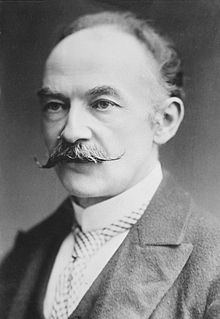
Thomas Hardy was an English novelist and poet. A Victorian realist in the tradition of George Eliot, he was influenced both in his novels and in his poetry by Romanticism, including the poetry of William Wordsworth. He was highly critical of much in Victorian society, especially on the declining status of rural people in Britain, such as those from his native South West England.
In Irish legend Aibell was the guardian spirit of the Dál gCais, the Dalcassians or Ó Bríen clan. She was the ruler of a sídhe in north Munster, and her dwelling place was Craig Liath, the grey rock, a hill overlooking the Shannon about two miles north of Killaloe. Aibell also had a lover and a magic harp.

Emily Elizabeth Dickinson was an American poet. Little-known during her life, she has since been regarded as one of the most important figures in American poetry.
Dorothy "Dossie" Easton, who has also written under the name Scarlet Woman, is an American author and family therapist based in San Francisco, California. She is polyamorous and lives in West Marin, California.

Two on a Tower: A Romance (1882) is a novel by English author Thomas Hardy, classified by him as a romance and fantasy it is one of his minor works. The book is one of Hardy's Wessex novels, set in late Victorian Dorset.

Stranger Music is a 1993 book by Leonard Cohen. It compiles many of his published poems, as well as the lyrics to his songs.
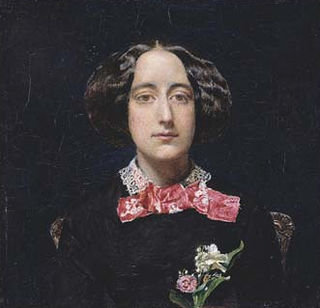
The Angel in the House is a narrative poem by Coventry Patmore, first published in 1854 and expanded until 1862. Although largely ignored upon publication, it became enormously popular in the United States during the later 19th century and then in Britain, and its influence continued well into the twentieth century as it became part of many English Literature courses once adopted by W. W. Norton & Company into The Norton Anthology of English Literature. The poem was an idealised account of Patmore's courtship of his first wife, Emily Augusta Andrews (1824–1862), whom he married in 1847 and believed to be the perfect woman. According to Carol Christ, it is not a very good poem, "yet it is culturally significant, not only for its definition of the sexual ideal, but also for the clarity with which it represents the male concerns that motivate fascination with that ideal."

The Assessment and Qualifications Alliance has produced Anthologies for GCSE English and English Literature studied in English schools. This follows on from AQA's predecessor organisations; Northern Examinations and Assessment Board (NEAB) and Southern Examining Group (SEG).
"The Convergence of the Twain " is a poem by Thomas Hardy, published in 1912. The poem describes the sinking and wreckage of the ocean liner Titanic. "Convergence" consists of eleven stanzas of three lines each, following the AAA rhyme pattern.

Scram! is a 1932 pre-Code Laurel and Hardy film produced by Hal Roach, directed by Ray McCarey, and distributed by Metro-Goldwyn-Mayer.
"The Face upon the Barroom Floor", aka "The Face on the Floor" and "The Face on the Barroom Floor", is a poem originally written by the poet John Henry Titus in 1872. A later version was adapted from the Titus poem by Hugh Antoine d'Arcy in 1887 and first published in the New York Dispatch.
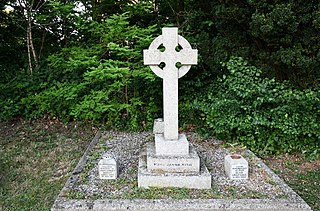
Tryphena Sparks, born in Puddletown, Dorset, the youngest child of James and Maria Sparks, was Thomas Hardy's cousin and possible lover, when she was 16 and he was 26. Hardy's mother suggested that Tryphena was not actually his cousin but his niece and he was thus prevented from marrying her. There are also suggestions that she had Hardy's child, a son called Randolph. The relationship ended when Hardy became engaged to Emma Gifford. She is considered by John Fowles an "important figure in both his emotional and imaginative life" and author Nicholas Hillyard considers that the affair is important in relation to Hardy's start as a novelist and poet.

Emma Lavinia Gifford was an English writer and suffragist, who was the first wife of the novelist and poet Thomas Hardy.
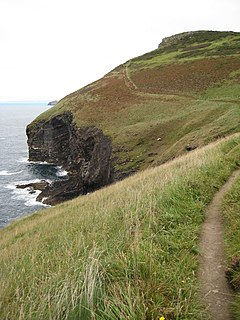
Beeny is a hamlet in north Cornwall, England, UK. It is in a sheltered valley near the coast two miles (3 km) north-east of Boscastle.
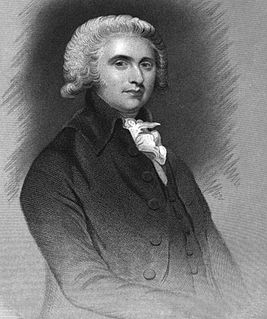
"To Erskine" or "To the Hon Mr Erskine" was written by Samuel Taylor Coleridge in November 1794. The subject of the poem is Thomas Erskine, a lawyer and member of the Whig party, who successfully served in the defense of three political radicals during the 1794 Treason Trials. Coleridge admired Erskine's defense and praised his refusal to accept money for his service. The poem was published in the 1 December 1794 Morning Chronicle as part of the Sonnets on Eminent Characters series. It was later included in various collections of Coleridge's poetry published later.

"The Man He Killed" is a poem written by Thomas Hardy. Written in 1902, it was first published in Harper's Weekly, Nov. 8 1902. The first book publication was in his Time's Laughingstocks and Other Verses.

"A Trampwoman's Tragedy" is a 1903 narrative poem in 104 lines by Thomas Hardy. Hardy ranked the poem highly amongst his works, and came to believe that it was "upon the whole his most successful poem."

"The Ruined Maid" is a satirical poem by Thomas Hardy. It was written in 1866 but first published, in a slightly bowdlerized form, in Poems of the Past and the Present (1901).

L’Amour fou is the 27th studio album of French popular singer Françoise Hardy. Released in France on November 5, 2012 on CD Virgin/EMI (5099997278726), and December 3, 2012 on LP Virgin/EMI (5099997278719).
References
- ↑ Hardy, Thomas (1923). Collected Poems. London: Macmillan. pp. 325–326.